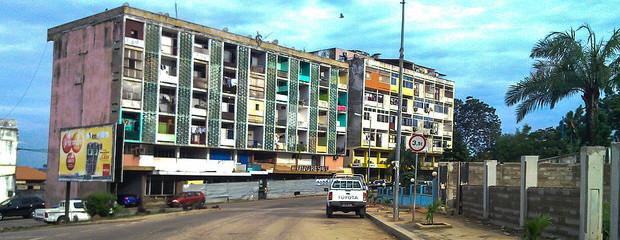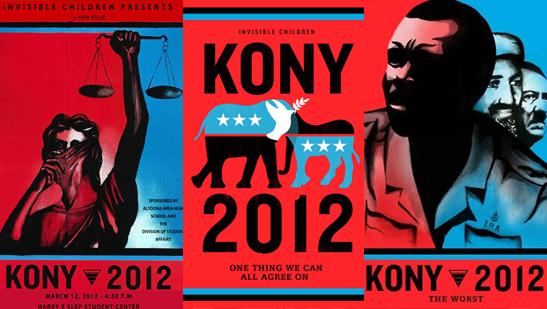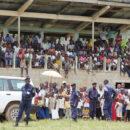Darfur Déjí Vu – By Alex de Waal

 There is an old joke that Sudanese politics is different every week but if you come back after ten years it is exactly the same.
There is an old joke that Sudanese politics is different every week but if you come back after ten years it is exactly the same.
That sums up my impressions of the Darfur peace talks in Addis Ababa two weeks ago, except that it is nine years ago, not ten, that I became engaged full time in working for the African Union on the last round of the Darfur mediation.
The participants are almost all the same, except greyer, thicker around the middle, and (in the case of the rebels) wearing smarter suits. It is the same Minni Minawi; the same Abdel Wahid al Nur (booked into a different hotel and refusing to turn up); Khalil Ibrahim has been replaced by his brother Jibreel; Majzoub al Khalifa has been replaced by his deputy Amin Hassan Omar.
The same issues, the same demands, the same procedural gimmickry, the same obstinacy, the same selective memory. (Didn’t they sign a Declaration of Principles that includes all the issues they are raising now, back in July 2005?)
The same claims by the government generals that they are on the brink of victory, and by party bosses that they are about to win round most of the rebel commanders, leaving the rebel leaders isolated; the same earnest claims by the rebels that they are talking to the Arabs who are about to rise in revolt, and the government is about to collapse when the next army offensive fails.
The same blithe insistence from U.S. diplomatic staff that Minni should be taken seriously and the rebels have learned a lot. (They have learned that the U.S. is gullible.)
The Darfur Peace Agreement failed eight and a half years ago because the government delegation had other priorities than settling the Darfur conflict on terms they thought were too expensive. (Today, the Khartoum government’s priority is not to lose the $2 billion promised by Qatar on the condition that there is no interference with the Doha Document for Peace in Darfur.)
It failed because the same rebel leaders represented a small fraction of Darfurians, and moreover were too weak to take their followers with them into a peace deal, and so the rebel movements fragmented.
Darfur’s conflict can be settled but not by these means.
Alex de Waal is Director of the World Peace Foundation.







Professor Alex
You too remained the same, negative opinions, unclear targets, seeking weaknesses of Darfuri movement, you also remained unchanged.
I want to know, what do you want from Darfur and its conflict?
do you think the solution is a new colony from your empire to loot more resources of us? the solution will come when bad heart and ill mines like you disappeared from this planet. Please go and sell your poisons over there, because you are a part of the dilemma and can not be part of the solution
Dear Alex,
I would like to differ absolutely from the ridiculous and very rude comments by Abdelaziz Sam. You do remain the same in one respect- you hit the nail on the head- once again. You sum up the miserable situation very accurately and dispassionately. One can only continue to hope that one day things will change for the better.
Hoping to see you again in Khartoum one day,
Best regards,
Samia
Dear Alex
Good diagnoses and observations.
Any prognosis?
Has the world reached “fatigue point” with Darfur?
Any thoughts on the inter-linkage of Darfur with South Sudan/South Sudan conflict?
Is there enough inherent capacity within the AU to deal with Darfur issues?
Stay well
Tag
Alex de Waal’s observations on the latest round of Darfur mediations point to a symbiotic relationship between the Darfur rebel groups and the Khartoum establishment, they need each other for their political and economic survival.. Had there been relative peace in Darfur , why would Qatar offer a $2 billion incentive to the Khartoum establishment? And likewise the Darfur rebels risk losing their monopoly of the war economy in Darfur from which they gain handsomely. It is economics not politics that is at the heart of the Darfur conflict. The economic roadmap out of the conflict was provided by the Darfur Joint Assessment Mission ,D-JAM in the wake of the Darfur Peace Agreement (DPA) As the World Bank’s representative in Khartoum, I coordinated the preparation of D-JAM assessment. Had the parties to DPA implemented the social and economic development program envisaged in D-JAM report, using a share of Sudan’s oil revenues and donor assistance, Darfur just might have achieved a modicum of peace, not needing the billions of dollars that have gone into a futile and ineffective peacekeeping effort through the AU- UN mission.
Peace will come to Darfur when the Khartoum establishment ceases to view Darfur as an existentialist threat and the Darfur rebel groups realize that the economic and social welfare of Darfur is inextricably linked to Khartoum. A Darfur outside the rubric of Sudan would fragment and implode in ways far worse than anything seen in South Sudan.
It is time that AU turned its attention to a massive and comprehensive economic development program for Darfur,led by Darfurians with the full support of the Khartoum establishment.. How much better if the $2’billion from Qatar was spent directly in Darfur instead of placating the Khartoum establishment not to hinder the peace process.
Darfur is full of riches and its people a hardy , enterprising lot. A prosperous and peaceful Darfur would also enrich the rest of Sudan and benefit the Khartoum establishment. Let AU and the peacemakers see the light.
I’m afraid I have to agree with Alex. Of many threads of continuity, one is the long game of the arms suppliers. From (not least) Gaddafi’s manipulation of the Islamic Legion (from 1972) we just today see that the Riek Machar faction has acquired advanced missiles and other weapons for the coming dry-season war (from whom??). I’m afraid none of this is new and nothing on the horizon looks likely to change the status quo of chaos. I am currently (and not totally irrelevantly) immersed in the traditions and history of The Debateable Lands of the English-Scottish Borders and that anarchy went of for 300 years. I thank the Darfuris of all groups for their fantastic hospitality in my time there, 1969, 1970 and 1979 and the many things I learned from them.
Sorry I had not been following the arms issue for a couple of years but a cursory web search produced: ‘Africa’s arms dump’: following the trail of bullets in the Sudans’ from the Guardian of 2 Oct 2014 and a reference to a Small Arms Survey report of May 2014. FYI
Dr. De Waal is providing a glimpse to a state of nihilism and zero sum gain among Sudanese political and militant actors.
I, for one, am dismayed that such unimaginative individuals can hold the progress of a nation to a near standstill. It’s remarkable and humbling.